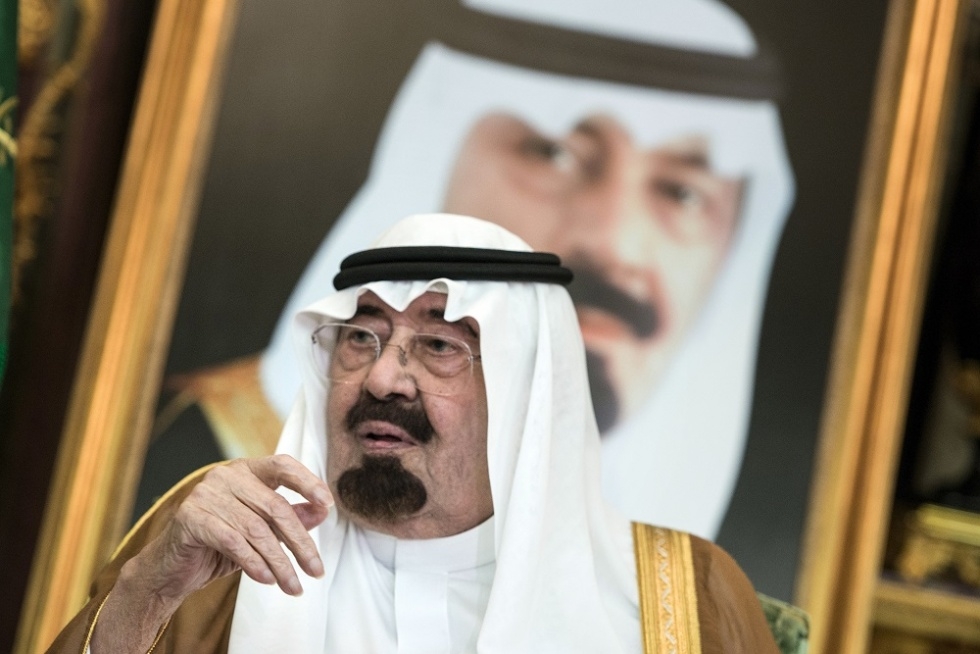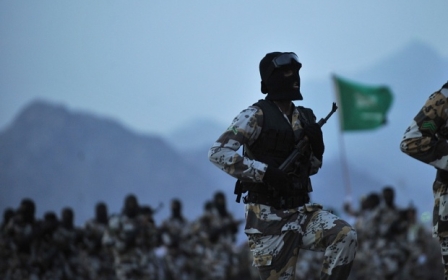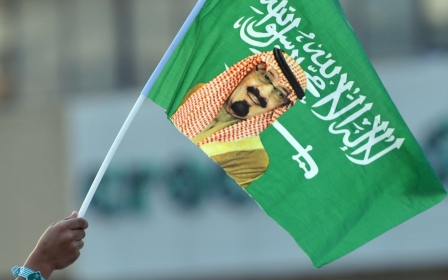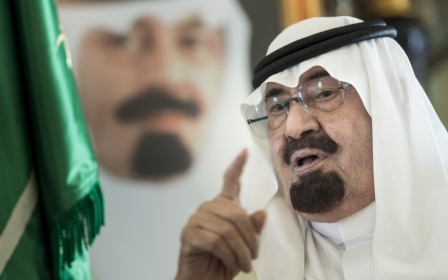Saudi king's health opens door to various scenarios

DOHA (AA) – The recent admission into hospital of Saudi King Abdullah bin Abdelaziz has raised questions about the political succession in the oil-rich Gulf state.
The 90-year-old ruler has been diagnosed with pneumonitis, making it necessary for hospital doctors to provide him with a tube to allow him to breathe.
Article Five of Saudi Arabia's governing charter regulates power succession in the country.
In 2006, the king drew up a body - called the Allegiance Council - to select the king and crown prince.
The king must be a son of the founder of Saudi Arabia, King Abdel-Aziz Al-Saud, according to Article Five of the charter.
The most appropriate of these sons should be selected to rule in line with the principles of the Quran and the teachings of Islam's Prophet Muhammad, the article reads.
The same article calls for the crown prince to assume the position of king when the king passes away, until the Allegiance Council can select a new monarch.
Article Six of the Allegiance Council's bylaws stipulates that the council will support the crown prince's coronation when the king passes away.
This means that the incumbent crown prince Salman bin Abdelaziz will take over as king if King Abdullah dies. The crown prince will continue to function as king until Allegiance Council officials formally appoint him to the kingship.
Conflict occasionally erupts in Saudi Arabia over the selection of the next crown prince.
Two figures are currently vying for the post of next crown prince, namely, Emir Mutaib - King Abdullah's son and current Republican Guard minister - and Emir Mohamed Bin Naif, the incumbent interior minister.
Article Seven of the Allegiance Council's bylaws calls for the king to nominate several people for the post of crown prince. The council should then meet to select one of the nominees, according to the article.
The same article also stipulates that a crown prince should be selected by the council within 30 days of the king's nomination.
However, a decision by King Abdullah in March of last year eliminated these procedures. The decision made it necessary for the future crown prince to be appointed following the death – not before – of the incumbent king.
The decision also created a new post, that of "deputy crown prince," for which Emir Muqrin bin Abdel-Aziz, 69 – the second deputy prime minister and the king's special envoy has been selected.
"Emir Muqrin will be appointed crown prince in case the incumbent crown prince passes away," the decision read.
It also stipulated that the "deputy crown prince" would be appointed king if the incumbent king and crown prince both died at the same time.
This state of affairs leaves the political succession in Saudi Arabia limited to a number of scenarios.
Royal decision
If the king's March decision is implemented, this means the selection of Saudi Arabia's next king and crown prince will be a foregone conclusion.
Accordingly, Emir Salman bin Abdel-Aziz, the incumbent crown prince, would be new king while Emir Muqrin would be crown prince
Emir Salman, 79, is a half-brother of King Abdullah. He was appointed crown prince in June of 2012 after the death of the late crown prince, Emir Naif bin Abdel-Aziz.
Emir Muqrin is also a half-brother of the Saudi king.
When Emir Muqrin was appointed deputy crown prince, a royal decree asserted that his appointment had been made with the approval of 75 percent of the Allegiance Council's 35 members.
Muqrin, the youngest son of the founder of Saudi Arabia, is the first man to occupy the new position, which has put him in range of the country's top royal post.
The royal decree appointing Emir Muqrin to the post says the decision cannot be altered or changed in the future by any party.
Conflicts
There is also the possibility that conflicts could erupt over the selection of the next crown prince.
But this possibility is linked to the immunity that King Abdullah extended to Emir Muqrin as part of the decision to appoint him as deputy crown prince.
When doing this, King Abdullah was perhaps aware that some members of the Allegiance Council had opposed his plan to create the new position and appoint Emir Muqrin to it.
Nevertheless, Emir Khaled bin Talal, a brother of Saudi business mogul al-Waleed bin Talal, recently wrote on Twitter that 75 percent of Allegiance Council members had approved Muqrin's appointment as deputy crown prince merely to please King Abdullah and his crown prince, Emir Salman bin Abdel-Aziz.
He added that these council members had agreed to the appointment without even holding a council meeting.
Bin Talal warned against the ramifications of the move, saying making appointments without a council meeting could sow the seeds of future divisions.
It also means that certain council members approved Muqrin's appointment only to please the king, meaning that conflict could erupt when a new crown prince is selected.
Emir Muqrin is supported by Emir Mutaib, the National Guard Minister and the son of the king.
Nevertheless, some members of the royal family believe that Emir Ahmed bin Abdel-Aziz, a former interior minister, deserved Muqrin's position.
Some people, however, expect Saudi Arabia – arguably the most stable monarchy in the Arab world – to resolve these disputes, which would be in nobody's interest, while Saudi Arabia faces serious security challenges.
Stepping down
One possible scenario is for King Abdullah to step down, given his health condition, to ensure a smooth succession of power while he is still alive.
The abdication of the king would be an unprecedented event in the modern history of Saudi Arabia.
Some people do not rule out this possibility, however, especially given King Abdullah's record for taking unusual steps to preserve the country's stability.
The appointment of Emir Muqrin as crown prince will secure Emir Mutaib's appointment as crown prince in the future, when Muqrin is eventually coroneted.
New king
There is a possibility also that the Allegiance Council will nominate a new king, given King Abdullah's health condition.
Article 11 of the council's bylaws stipulates that the council can appoint the crown prince as king in the event that the king is deemed physically incapable of performing his duties.
Some people though rule out this possibility.
All these scenarios are based on the assumption that Crown Prince Salman bin Abdel-Aziz is physically fit enough to be king, meaning there will be no dispute in Saudi Arabia over the country's next king.
The problem still lies in the selection of the crown prince.
King Abdullah underwent back surgery on 17, November 17 – his fourth surgery within two years.
Since then, he has absented himself from several major events, including the latest Gulf Cooperation Council summit in Qatari capital Doha. The Saudi delegation to the summit was headed by Crown Prince Salman.
King Abdullah, who took over in 2005 upon the death of his brother, the late King Fahd, is currently the Arab world's oldest ruler.
Middle East Eye propose une couverture et une analyse indépendantes et incomparables du Moyen-Orient, de l’Afrique du Nord et d’autres régions du monde. Pour en savoir plus sur la reprise de ce contenu et les frais qui s’appliquent, veuillez remplir ce formulaire [en anglais]. Pour en savoir plus sur MEE, cliquez ici [en anglais].




